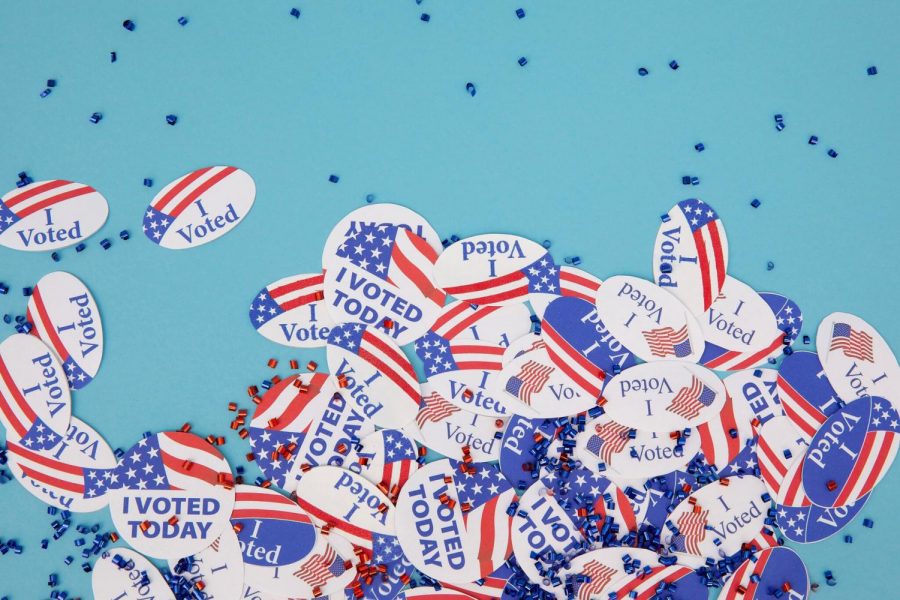Viewpoint students react to election results
November 9, 2020
America’s stress-inducing election week finally came to a halt on Saturday when residents awoke to the news that Joe Biden won Pennsylvania, placing him over the 270 electoral votes needed to become the president-elect. Major news outlets, such as Associated Press, CNN, and Fox News, have all called the race and project Biden to be the next commander in chief.
This year’s election broke records for numerous reasons. Americans turned out in unprecedented numbers, both by mail and in-person. Biden has received over 75 million votes to date — more than any other presidential candidate in history. Donald Trump has currently received over 70 million votes, the most of any sitting president, but not enough to keep his position.
With this historic election and continuing pandemic, Viewpoint students have yet again had to learn how to adapt to and process the ever-changing world around them. While some feel cautious about the future, many feel optimistic.
Marissa Borochoff (’22), a member of Viewpoint Votes (Viewpoint’s civic engagement initiative), feels, “happy with the results of the presidential election,” and, “is really excited to see the change brought about in (the) country under a new and — more open-minded administration.”
On the other hand, a student who wishes to remain anonymous believes, “that it is too soon to tell if it was a correct choice for America and the American people but (the country) shall see how the future reveals itself.”
Viewpoint has taken an active role in promoting education and awareness about the election. Last Wednesday, the upper school provided students with the opportunity to visit a number of teachers’ and administrators’ Zoom rooms to discuss any of their post-Election Day worries and questions. Prior to this, Viewpoint Votes hosted a mock election for the upper school.
“I thought the mock election that Viewpoint Votes facilitated was a cool way to see how our community of students and teachers were thinking the day before the election,” says Borochoff.
Julien Fagel (’21) shares that he really liked the conversation he had in his group on Wednesday. “I went to Ms. Dority’s room because I think she’s — taught me a lot about not only political science and civil society, but specifically how voting and how democracy works,” he says. Fagel also thinks that the large number of Zoom rooms that were open allowed the conversations to be more personal. “I thought that one-on-one dynamic with a teacher — provides a really nice environment to speak openly and speak comfortably regardless of your political opinion,” he says.
On top of discussing Election Day, Fagel was able to participate through voting. “I filled out my ballot weeks in advance — and went in November 3rd and handed in my ballot,” he says. He was excited to see how easy voting was but admits that researching the propositions was difficult and regrets not being the most informed on some.
Borochoff went to Ms. Hunt’s room on Wednesday and, “had a really insightful discussion with Dr. Steiger and a few other students.” She and her group spent their time asking questions and discussing possible outcomes.
Seeing the popularity of the Zoom room discussions amongst the students interviewed, they agree that these intimate spaces should be recreated and have ideas for how Viewpoint should react to the results of the election, as well as speak on politics in the future.
The anonymous student says, “I do not think they (Viewpoint) should have a high school-wide assembly on it (the election results) because I think that Viewpoint tends to be very left-leaning.” The student also says, “Viewpoint should go about discussing politics through creating a club or have Zoom rooms available for open discussions.” But the student also believes that there should be boundaries for these conversations: “I think that it’s not really a school’s place to potentially influence the students’ views as some of the teachers have been doing.”
Fagel concurs with Viewpoint’s liberal tendencies: “As a whole, I can also recognize that the school is very left-leaning — and that the teachers that are actively involved in political discourse — about civil society are largely liberal.”
In terms of discussing the election results, Fagel thinks that Viewpoint should give students a space to do so and thinks that the school can improve on giving students the chance to hear from teachers who have differing opinions from their colleagues. However, Fagel also feels that, “it’s — important to ensure that the views (the school) does discuss are inclusive and (that) there’s certain things that shouldn’t be up for debate, like people’s rights.”
“There is always room for improvement but I can honestly say that Viewpoint is doing so much more than most schools out there and I am honored to have been a part of it,” says Borochoff.
